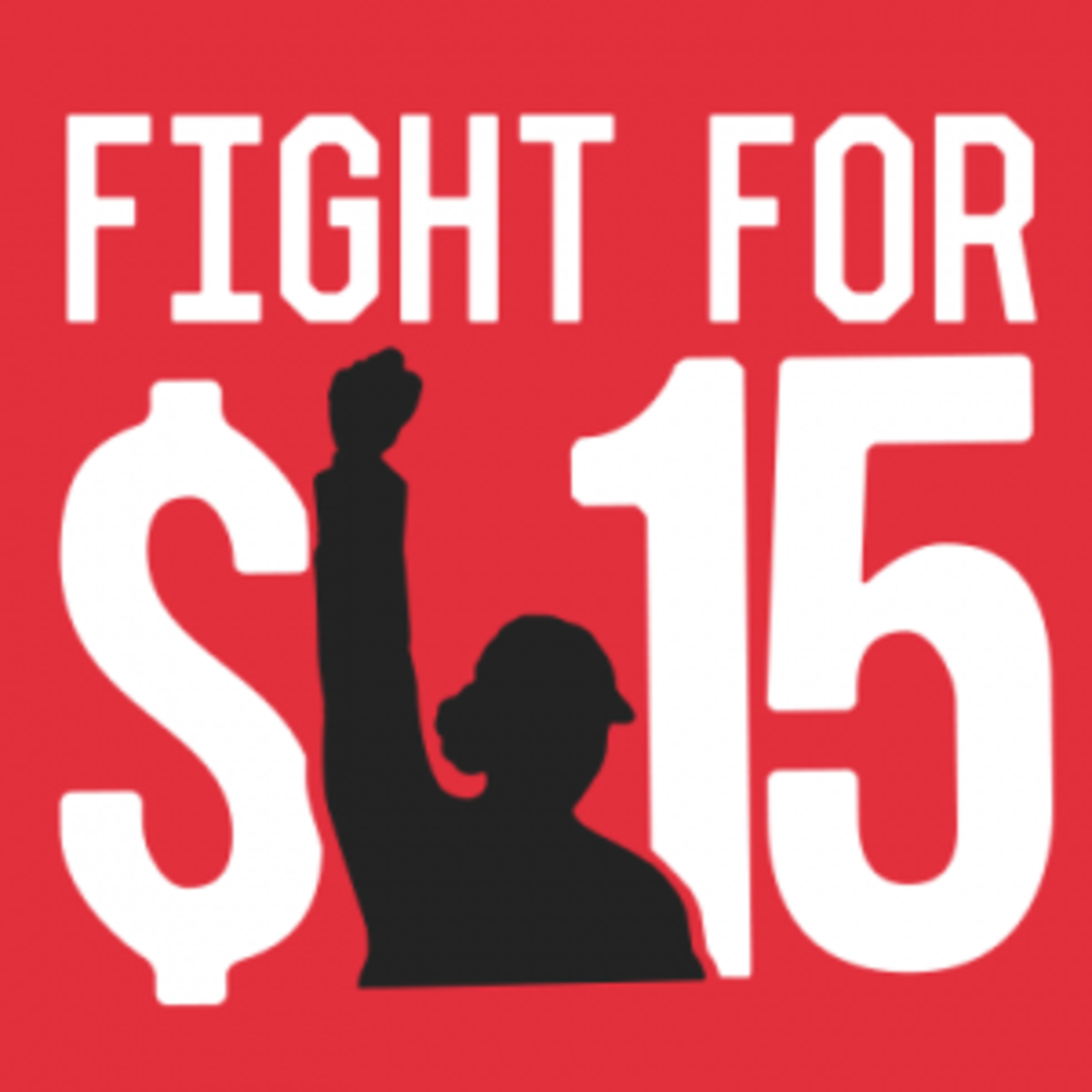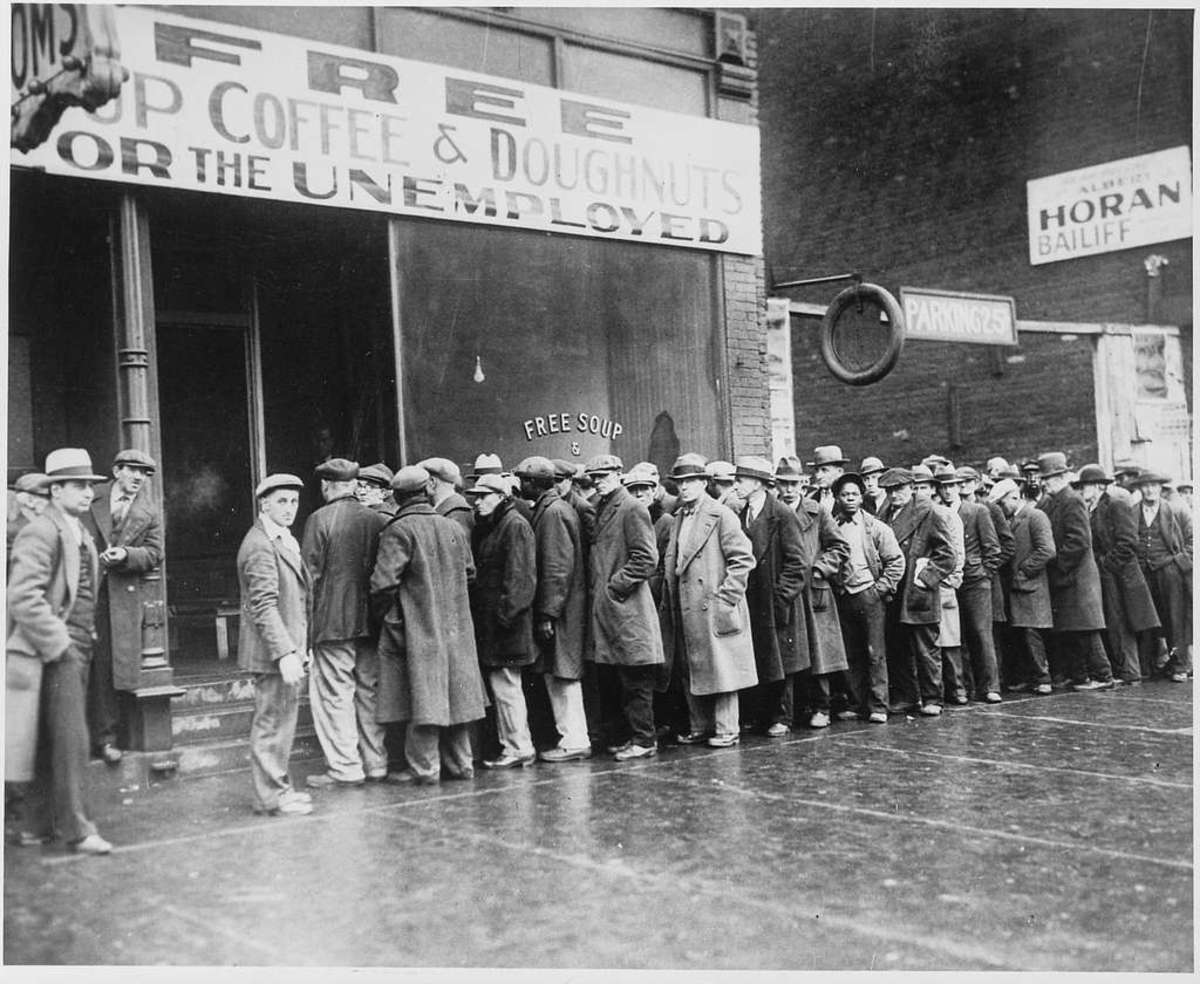How to Stimulate the Economy: What will happen if we get rid of / abolish minimum wage? Will there be more jobs?
Introduction
People talk about how to stimulate the economy all the time. Federal Reserve is trying to pump more money into the economy through "quantitative easing", but the money seem to be stuck in the banks, and not trickling down to the people.
There is actually a very simple solution: abolish minimum wage EVERYWHERE in the US.
Why? Because this still stimulate hiring and expansion, and in return, actually move the money from the banks into the economy. And it really has very little downside.
However, let us go into the history a little... Why is there a minimum wage at all?
A (Very) Short History of Minimum Wage
For the first 50 years of the United States, there was no such thing as a minimum wage. In fact, Supreme Court had once outlawed labor unions, ruling that collective bargaining infringed upon the rights of individual workers to negotiate their own wages. As a result, wages are extremely low, and got even lower during the Great Depression, when jobs are even harder to come by. People are paid pennies a day for a full day's work.
Theodore Roosevelt used the wage issue in his 1936 campaign for the presidency, promising to solve the problem if he elected. He won, and minimum wage was introduced in 1938 in the "Fair Labor Practices Act" that set the national minimum wage at 25 cents per hour. Ever since, the Federal Minimum Wage was revised upward (and occasionally, downward) by Congress every few years.
In 1997, President Clinton signed legislation that allowed each state to set its own minimum wage.
Why Minimum Wage Hurts The Economy
Why does minimum wage hurts the economy? Because this disrupts the balance between employer and employee.
Think of employer and employee as engaged in a tug of war, with the "middle" being the current salary level.
If the two sides are balanced, the salary remains stable.
If a new pool of labor is opened up, more people competing for the same jobs, salary will fall, because some people are willing to accept less money for the same job.
If some sort of law is passed shrinking the labor pool (some sort of training requirement), then the salary will rise, because there are less people willing to accept the job for same amount of money.
A new equilibrium will be reached, and that is the new salary level.
Minimum wage upsets that balance. The wage was simply a line drawn somewhere.
To employer: "You must pay at least this much!"
To employee, "You must accept at least this much, and you are not allowed to work for less!"
That arbitrary line simply makes no sense. Freedom to choose on both sides had been restricted, and to what purpose?
What if the employee work for too little?
The employee have his or her reasons to work for the wage s/he chooses to. Maybe she can live leaner than others, or have other sort of support system. One "living wage" or "minimum wage" does not apply to everybody. Everyone is different.
Besides, if an employee doesn't make enough to make ends meet, then s/he will leave for a job that would, and that don't-pay-enough job will go unfilled and goes to another employee that CAN work for that price.
If nobody is willing to work for that salary, then the employer have to raise the salary to attract candidates.
Why Minimum Wage Does NOT Help the Employee Much
Labor activists and liberals claim that without minimum wage, the wages will be too low to live on. This is a bogus argument, and smacks of "Big Brother". Basically, they are saying the workers are too stupid to realize they are selling themselves too cheaply, so the government must protect them from their own stupidity.
How does the supply and demand of labor balance out? Let's say the employers, instead of paying $10 dollars per hour, only wants to pay $5 now. Since the existing workers can't live on $5 per hour, they will quit and find a higher paying job. Elsewhere, people who CAN afford to work for only $5 per hour (less skilled, etc.) will come to work for this employer.
What if this employer wants to go even lower? Let's say, 1 dollar per hour? If there are NO people willing to work for $1 per hour, then the job won't get filled. So the employer will have to find a wage for the job he needs done, and $1 is clearly too low.
Besides, a single person working at a minimum wage job is WAY BELOW the Federal "poverty line", usually only 75% of the poverty line threshold, sometimes lower.
Furthermore, living conditions for each worker varies. Different areas have different costs of living. Furthermore, some may be able to live for less if he's living back home, with someone else, sharing a flat, and so on.
A national "minimum wage" just doesn't work. It will be too high for some areas, not enough for other areas, and the bureaucracy needed to maintain such a thing can be better spent on other things.
In fact, another study says that for every 10% increase in minimum wage, the population of 16-24 year old with less than high school diploma fared worse. Whites lost 2.5%, Latinos lost 1.2%, and Blacks lost 6.5%. (Link broken)
Furthermore, a minimum wage will often encourage the company to move the jobs overseas where the wages are much cheaper. Why do you think the iPhones and iPads are made in China?
Even if the jobs stay domestic, it basically encourages hiring of illegal workers, who are willing to accept less than minimum wage as they are already illegal, breaking another law is not a problem.
Minimum wage doesn't help the workers much. It simply makes sure the employers hire LESS people (if they stay legal), or go extra-legal (like going overseas or hire illegals).
Why Minimum Wage Makes the Employer Worse Off
A business have various expenses: equipment, material, overhead... and labor.
With labor "fixed" at minimum wage (or higher), and overhead probably fixed as well, this gives the business far less flexibility to control expenditure. Let us study this very hypothetical example:
Let's say the business owner has studied the expenditures of his proposed store. He knows the cost of his goods, his overhead, his equipment, and so on. Those are pretty fixed. He knows what sort of profit margin he wants, so he budgeted for 2 employees at what he considers to be a fair price, and set the item prices accordingly.
Now let us study the possibilities.
Let's say there is a large flux of immigrants into the area, expanding the labor pool considerably. So there are a few possibilities... Either the quality of the candidates go up (and productivity goes up), or the actual pay per employee goes down, as the immigrants are willing to sacrifice pay to get work. Very often, BOTH happens, as productivity gains are very hard to measure, but salary cuts are easy. Either way, the business profit improves, and the business can expand, and more money gets pumped into the economy.
However, the "minimum wage" is implemented, and the salary does NOT fall, then the profit will NOT improve, and economy will not expand. The only gains are through productivity, and that's usually higher equipment expenditures and so on.
If that example didn't quite work, think of it this way: with all the competition (all the other jobs out there), the wage level is "self-regulating". You have to offer a "fair" wage or you will have few if any to work for you. The difference is what is the definition of "fair", and who are the best judge for that other than the employer and the employees themselves? Nobody!
In fact, a study shows that the increase of minimum wage in July 2009 may have caused a LOSS of 800000 jobs. The math and explanations are a little thin, but people are raising the issue.
Why Abolish Minimum Wage?
- The vast majority of economists believe the minimum wage law costs the economy thousands of jobs.
- Teenagers, workers in training, college students, interns, and part-time workers all have their options and opportunities limited by the minimum wage.
- A low-paying job remains an entry point for those with few marketable skills.
- Abolishing the minimum wage will allow businesses to achieve greater efficiency and lower prices.
- When you force American companies to pay a certain wage, you increase the likelihood that those companies will outsource jobs to foreign workers, where labor is much cheaper.
- Non-profit charitable organizations are hurt by the minimum wage.
- The minimum wage can drive some small companies out of business.
- A minimum wage gives businesses an additional incentive to mechanize duties previously held by humans.
- Cost-of-living differences in various areas of the country make a universal minimum wage difficult to set.
- Elimination of the minimum wage would mean more citizens and fewer illegals would be hired for low-pay hourly jobs, leading to greater tax revenues and less incentive for illegal immigration.
- The minimum wage creates a competitive advantage for foreign companies, providing yet another obstacle in the ability of American companies to compete globally.
- The minimum wage law is just another example of government condescendingly controlling our actions and destroying personal choice. Citizens do have the ability to saynoto a lower wage.
Conclusion
Reduce or eliminate minimum wage will stimulate the economy, as hiring workers, who are flexible, is cheaper than purchasing equipment for automation and other productivity multipliers. This would fix unemployment, get money circulating in the economy, and thus, improve overall conditions.
Why keep the minimum wage? There really isn't much reason to.








